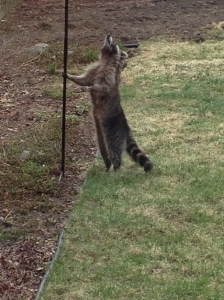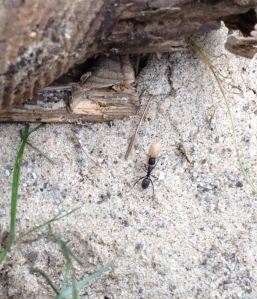Thoughts and prayers.
Thoughts and prayers.
Thoughts and prayers.
Travel bans, hate crimes, DACA.
Thoughts and prayers.
Thoughts and prayers. Those words fill my Facebook feed, but they are meager offerings in the face of yet another tragedy at the hands of a man with a gun. They leave the mouths of our elected leaders, yet those words don’t finance rebuilding a distant and brown part of the United States or bring back black boys and men who died because of the color of their skin. They are what we offer when we are scared and sad and overwhelmed. Thoughts and prayers are what we say when we don’t know what to do and when we want to be seen (even by ourselves) as doing something. They are what we say when we wash our hands of problems and throw the troubles of others to the divine.
Thoughts and prayers. I have thousands of the former. Sad and pleading thoughts. Angry and outraged thoughts. Hopeless and helpless thoughts. Even, occasionally, a hopeful thought, which always surprises me, blooming among the ash and debris of a nation exploded. I have thousands of thoughts. Not one has held back a hurricane, blocked a bullet, raised the dead, protected the innocent, or brought any good out of evil. Thoughts can’t do that. Thoughts are, well, just what our head does when we’re not otherwise occupied. Our thoughts can consume us, and it is easy to mistake thoughts for action.
But prayers. Of these I have none. In the saddest and most desperate moments, I’ve found myself pleading to the universe, perhaps invoking a God whom I no longer believe in, but prayer? Prayers, like thoughts, have yet to hold back a hurricane, block a bullet, raise the dead, protect the innocent, or bring good out of evil. Prayer can soothe us, as it, like thought, can feel like action. But prayer — an act of faith in the divine — is an escape hatch I no longer have.
I left my faith behind over a decade ago. I didn’t lose it. It wasn’t misplaced, nor was it neglected and thus somehow tattered beyond all recognition. It was, after much thought and no small amount of distress, set aside somewhat reluctantly and with a sense of loss that kicks back in times like this. This was not unlike the fate of my wedding ring, reluctantly yet resolutely removed post-separation, returned to its velvet box of origin, now a casket for the ring and a marriage, and tucked deep in a rarely-used dresser drawer. Not lost. No. Intentionally left behind.
Faith. Religious faith is a slippery commodity. It is the currency of religious belief, which is both gifted and cultivated. Faith is considered a gift, given by the one who is then the recipient of the belief (God, by whatever name or names) that comes from the gift. This circular and seemingly self-serving system seems to benefit mostly the divine, but to say the mortal receives no benefit would be dishonest. Faith is a refuge, a sure shelter when the world seems rocky and riotous. To have faith — to believe in what cannot be seen and cannot be empirically known — is said to be a virtue. It is good to have that faith, to take that gift, to believe. It’s good for the belief system overall and, from personal experience, it can be good for the believer.
It was good for me. First, I had a sort of blind faith, one that moved from a child’s faith that what my parents and church said must be true: that a divine being, which we called God, was somewhere or everywhere, doing something generally beneficial for someone or maybe everyone or perhaps just some people. It was fuzzy, the faith of my childhood, and in many ways, I’m grateful for that. The God of my youth was distant but apparently cared that we thanked Him (and the God of my youth was male) before meals. Jesus did the hands-on stuff — curing lepers, raising the dead, and turning water to wine. God took the credit and quietly cared for us.
During my teen years, Catholic school and a rather conservative (for the 1980s) Catholic youth group brought some complexity to faith. It was in those years that faith became part of my vocabulary, truly an entity that could be protected, abandoned, lost, squandered, sought, or gifted by the divine. Faith shared some traits with virginity — given to one without request but lost if not careful and virtuous, and, perhaps, returned if one repented for losing it and promised not to do so again. Thus faith can be a word that could be used somewhat threateningly: “Don’t you have faith?!” “You just have to have faith!” And, perhaps most ironically, “You just need to pray for faith.”
So I had faith. And I was careful not to question it, to hold it up to the light. I had faith because I needed God to keep me, to love me, to approve of me. I wasn’t afraid of hell (having not been raised with a heaven). I was afraid of being alone, with only myself to keep, love, and approve of me. Faith was somewhere between talisman and weapon, like a rabbit’s foot with a sharpened claw.
Yet faith served me. It kept my life in order, and it warded off the worst of evil. Faith, after all, allowed me to lean on a god who loved me no matter what and who wouldn’t let humans destroy one another. It kept me in the safety of the Catholicism I’d chosen at the start of my adolescence, a Jesuit Catholicism, steeped in justice, simmered in the Gospels, and garnished with Jesus’ messages about how we should love and care for one another. It was faith that allowed me to see hope where there was little, as the God to whom I pledged my faith was a God of redemption and unconditional love, and God clearly would make all okay.
Well, that was until I thought it about it. It was thoughts about prayer that undid my relationship with faith. It was a slow undoing, a reluctant and gradual process of unwinding the first-whispering and then-shouting doubts that prayer was not going to save the world or even me. Doubts whispered at first, buzzing in the words of priests whose praise only was for those who believed in a Catholic God (which I knew was not a thing). It then roared as 9/11 made my world bigger and darker and scarier. Holding my newborn son in my arms, nursing him during the night, watching the flashes of light from the TV, bombs falling on moms and nursing babies who were dying in Afghanistan after so many people died here, deaths not canceling one another out but simply amplifying suffering and fanning the flames of hate. I spent many nights, my son at my breast, drowning in the tears of sorrow for those I’d never met or even considered. I prayed, but still I drowned, and still moms and babies died.
It was then that I loosened my grip on faith. Still, it took years for me to fully examine the heart of my religious life: prayer. Mine wasn’t a unique crisis. It was new to me, but it is as old as ideas of a divine who — if s/he chooses — can interfere with human lives. How can a benevolent, omnipotent, omniscient God listen to some prayers and intervene for good while letting moms and babies die in horrific ways? That was the first question, one that sat stewing for some time, but it was quickly joined with both a logical undoing of a system not designed for logical analysis but rather counts on, ironically, faith.
So I set down faith. I didn’t throw it out. I didn’t lose it. I set it aside, holding it from time to time, occasionally praying, again ironically, for that faith to somehow work again. I changed belief systems, but moving to an Episcopal church brought me only time to work through the grief. I stuck at it for a bit, needing the ritual and rhythm of the service and wanting the option to pray to a God I was increasingly sure wasn’t there, just in case he was. But I could no longer make it work. I could no longer see the divine in a god. I could see love in Jesus and compassion in the Buddha and the power of community in action working for the common good, but I had set down my faith, as I could not see God.
A year or two later, I was doing the same with my wedding ring, reeling at a reality that was only the stuff of books and movies. Marriages take a faith of sorts along with hard work, patience, dedication, honesty, and love beyond measure. The faith in a marriage can similarly be undone by logic and reason, as well as by violence and injustice. I held onto the messy remains of a marriage torn asunder like I’d held onto my fraying and failing faith. It HAD to work, you see. This is how it is to be.
But it didn’t, and so I let go. I did not let go with the quiet grace I that accompanied leaving my faith in God. I was not simply resigned and saddened, or simply empty. I was instead furious, gripping tight and throwing off all in the same breath, deprived of choice and agency. But I let go and put the ring — and my marriage — away.
A decade later, I’ve found love again, but this time I have also found faith in my ability to care for myself and still let someone else care for me. A decade later, my religious faith remains packed away, a sometimes tempting treasure of the past that I still occasionally mourn, as faith and prayer and the comfort of a God who was looking out for me is, at points, appealing in its complex simplicity and ancient promise.
That setting down of faith leaves me without prayer, and when others offer both, I offer only the thought half of the duo. Thoughts — free and wild and sometimes hot and angry and sad — remain with me. But thoughts of any kind do not touch the violence of our world. They never have. And they never will. But, by my calculus, prayer doesn’t change the world either, or at least it doesn’t seem to have done so yet. Prayers have been offered for millennia, and to what end? Humans still suffer from disease and from one another. We pray to countless gods, and yet we still remain a predictably violent species how are markedly vulnerable to pain and suffering. I won’t deny that the chief benefit I see in prayer is a respite from hopelessness and helplessness for the one offering the prayer. It is precisely those benefits I miss. But prayer as an antidote to the inanity of humanity? No. It doesn’t work.
So much for thoughts and prayers.
Thoughts are silent and impotent in themselves. Prayers are, by my accounting, not actually feeding the hungry, clothing the naked, rebuilding Puerto Rico, or bringing back the life, health, and hope of those who found themselves in an impromptu war zone instead of a concert. Thoughts and prayers may comfort us when nothing else does, and that is indeed good. But what thought and prayers cannot do is save the world from the harms humans wreak upon it.
Those jobs are up to us. It’s up to us to create a society that screams ENOUGH with violence. It’s up to us to push our representatives in government to act in ways that serve people, not big business. It’s up to us to have the hard conversations with those who regard any human as less. It is up to us to work for justice at home and abroad. It’s up to us to feed the hungry, clothe the naked, and demand that we rebuild Puerto Rico, Houston, and Orlando. It is up to us to never let another Trayvon, Tamir, or Philando be killed because of the color of his skin. It is up to us to speak, to act, to act up, to act out, and to live fully what we think and for what we pray. We cannot rely on thoughts and prayers to heal our world.
So I pick up faith. Not faith in the divine, but rather faith in the ability of humans to make change in the world. I have faith in the strength and power of human beings dedicated to justice and love. I have faith because good people do feed the hungry, speak up for the oppressed, care for the sick, and fight for rights for all human beings. This faith, I can keep. This faith, I can share. With this faith, you and I can change the world.










